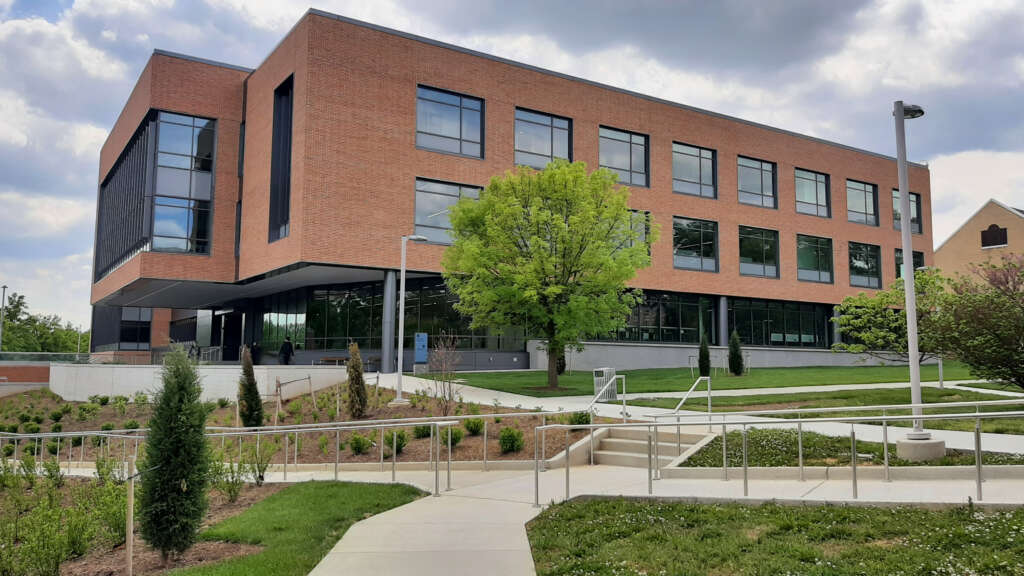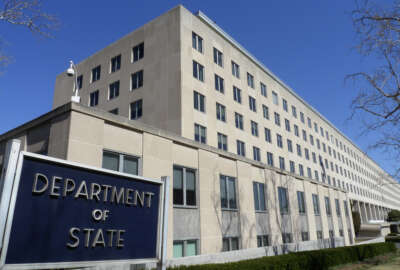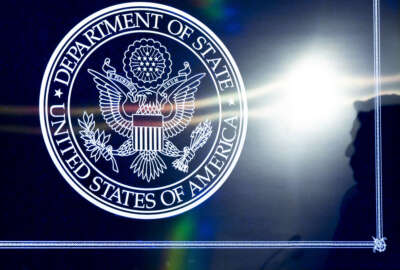State Dept rethinks training for Foreign Service at all levels amid hiring surge
The State Department is increasing its capacity to train members of the Foreign Service, and expanding the fields of expertise for its diplomatic corps, as the ...
The State Department is increasing its capacity to train members of the Foreign Service, and expanding the fields of expertise for its diplomatic corps, as the department embarks on its largest hiring of career diplomats in more than a decade.
The department on Monday held a dedication ceremony to commemorate the opening of a new wing of its Foreign Service Institute in Arlington, Virginia.
Secretary of State Antony Blinken said the new space is meant to accommodate the hundreds of new Foreign Service officers who will train at the facility in the coming years. That’s because the department is overseeing its largest hiring surge in over a decade.
“We significantly invested in what is the beating heart of American diplomacy, our workforce,” Blinken said at the ceremony. “The truth is for decades, we under-invested in training, because we were short-staffed on the frontlines.”
Blinken said a well-trained Foreign Service is essential to address the department’s biggest issues, including Israel’s recent war against Hamas, following terrorist attacks earlier this month.

Foreign Service personnel, Blinken said, have been “working around the clock, under tremendous pressure,” to support the defense of Israel and secure the release of hostages held by Hamas.
“Over the past few weeks, amidst the terror, the violence, the suffering that’s unfolding in the Middle East, we have seen how important a nimble, empowered diplomatic workforce is,” Blinken said.
Foreign Service staff are also addressing the humanitarian crisis in Gaza — including diplomatic efforts to get civilians out of harm’s way and ensuring aid trucks can enter the region.
“It is essential that we empower our workforce with the skills and training that they need to operate in a crisis like this one, and to meet any challenge that comes our way,” Blinken said.
FSI trains members of the Foreign Service and other federal personnel in dozens of languages, and teaches them about the politics and economics of the countries and regions in which they will serve.
FSI Director Joan Polaschik told reporters that the institute is heading up a “multi-year effort to radically transform, not just what we teach here, but how we teach.”
Polaschik said the Foreign Service is hiring more than 900 new Foreign Service officers each year, and that the institute is training classes of about 230 FSOs four times a year. The department, she added, has seen about 20-30% growth in its Foreign Service and civil service workforces since 2020.
“It’s massive growth,” Polaschik said. “The other piece of that is making sure that we’re building the opportunities for people to engage in career-long learning along the way.”
FSI recently developed dozens of new courses in mission-critical areas, including climate, global health and strategic competition with China. Those courses support policy areas that the State Department has elevated under the Biden administration.
The department created a Bureau of Cyberspace and Digital Policy in 2022 and a Bureau of Global Health Security and Diplomacy earlier this year. The department late last year also stood up an Office of China Coordination, known informally among diplomats as “China House,” to centralize its strategic competition efforts.
“A number of these areas are not what people most immediately think of when they think of the State Department. They haven’t necessarily, traditionally, been part of what we do. But now, and for the foreseeable future, they’re critical to our mission of looking out for our fellow citizens, advancing the interests of this country,” Blinken said.
FSI is offering these courses in in-person and virtual formats, to ensure Foreign Service employees have access to training wherever they’re based. The institute trains about 70,000 Foreign Service professionals every year.
The State Department is also rethinking training for its mid-career and leadership ranks.
Last month, FSI and the State Department’s Bureau of Global Talent Management rolled out its first-ever learning policy, focused on careerlong education beyond a diplomat’s initial, mandatory training.
The department has also launched an inaugural “core curriculum,” which addresses gaps in training for mid-career diplomats. Blinken said the core curriculum is “making sure that all of our teammates can succeed, not just those with a great mentor, or a strong personal network, as important as those are.”
To upskill its workforce, the department is investing in a “training float,” a concept former Secretary of State Colin Powell envisioned for the continuous professional development of U.S. diplomats. In practice, the training float ensures a set number of employees undergo training at any given time, without sacrificing front-line readiness at their posts.
Polaschik said the training float allows Foreign Service officers to keep training and learning new skills throughout their careers.
“It’s not just a kind of one-and-done with the hiring surge, but how do we take advantage of the increase in our numbers, so we can pull people out of the workflow the same way that the military does?” she said.
Blinken said the training float is critical to “ensure that we have the capacity to advance our diplomacy abroad, without shortchanging our training.”
“I think this is one of the best initiatives that we’ve undertaken, and we want to see it through,” he added
The department has also overhauled and expanded its leadership training curriculum for entry-level officers all the way up to chiefs of mission.
“So much of what we do every single day depends, at a variety of levels on the quality, the effectiveness, the success of our management teams. And a lot of folks come to this mission to this pursuit, not necessarily steeped in those skills,” Blinken said.
The department is taking on some efforts to improve retention. That includes boosting access to benefits, including eligibility for student loan repayment.
Blinken said the department is expanding positions for Eligible Family Members on a region-wide basis. EMFs are the spouses, domestic partners, unmarried children under the age of 21 and dependent parents or siblings who are listed on a Foreign Service officer’s travel orders.
Blinken said the State Department also launched a retention unit, to pinpoint why Foreign Service members leave the agency midway through their careers, and to make improvements that might encourage them to stay.
“We’ve actually rolled it out to better understand and enhance our people’s experience, so that we win one of the most important competitions that we’re engaged in, and that’s the competition for talent,” Blinken said.
Blinken said the State Department is also looking to become a more inclusive workplace.
“It’s not simply because it’s the right thing to do. It’s because it’s the necessary thing to do,” he said.
Early in his tenure, he appointed former Ambassador to Malta Gina Abercrombie-Winstanley, a career diplomat with more than 30 years of experience, to serve as its first chief diversity and inclusion officer.
Abercrombie-Winstanley left the department in June, but during her tenure, the department developed disaggregated workforce data sets that break down the demographics of the workforce across nearly every one of its offices. The department has also taken steps to ensure more transparency and fairness in promotion decisions.
“We have the immense benefit of being from the world’s most diverse country,” Blinken said. “The idea that we would leave in any way on the sidelines, that diversity, simply shortchanges our foreign policy. It denies us different perspectives, different ideas, different ways of solving the problems that we have to solve.”
Copyright © 2024 Federal News Network. All rights reserved. This website is not intended for users located within the European Economic Area.
Jory Heckman is a reporter at Federal News Network covering U.S. Postal Service, IRS, big data and technology issues.
Follow @jheckmanWFED





